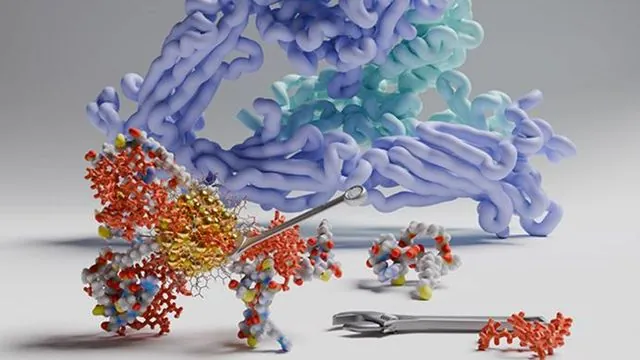
New Study Reveals Weight Loss Drugs May Diminish Heart Muscle: What You Need to Know!
2024-11-21
Author: Jacob
Study Overview
A recent study from the University of Alberta has raised significant eyebrows, suggesting that popular weight-loss medications could come with unexpected health risks, including a potential reduction in heart and muscle size. While these drugs are celebrated for helping individuals shed excess weight, experts are warning consumers to tread carefully.
Expert Insights
Lead author Jason Dyck, a professor in the Faculty of Medicine & Dentistry and a member of the Women and Children’s Health Research Institute, notes the importance of weighing the immediate benefits of these medications against potential long-term consequences. "For those who are genuinely in need of these drugs for conditions like type 2 diabetes, the benefits may outweigh the risks. However, many individuals using these drugs may not fall into those risk categories and should be aware of the possible implications," he stated.
Research Findings
The research began with an investigation into the side effects of Ozempic, a leading weight-loss drug known medically as semaglutide. Originally intended for blood sugar management in type 2 diabetes patients, Ozempic is now being repurposed as an effective weight-loss aid. Dyck's team found worrying evidence in animal studies; both obese and lean mice showed a decrease in heart muscle mass. Subsequent tests on human heart cells confirmed that the effects are not limited to mice.
Long-term Implications
Although Dyck indicated that no immediate impairments in heart function were observed in the mice, he cautions of potential long-term ramifications. "We need to be vigilant about cardiac health, especially since the number of users who do not have traditional risk factors is increasing. This calls for a thorough evaluation of heart structure and function in ongoing clinical studies," he emphasized.
Muscle Loss Concerns
Adding to the discussion, a recent commentary in *The Lancet* highlights alarming findings that up to 40% of the weight lost on these medications may come from muscle rather than fat. Carla Prado, a nutrition researcher who authored the commentary, warns that this rate of muscle loss is considerably higher than what is typically seen with diet or age-related decline and could lead to serious health issues. Notably, significant muscle loss can impair immunity, heighten infection risks, and reduce the body’s capability to heal.
Importance of Muscle Health
"Muscle is far more than a tool for movement; it’s a vital organ that plays numerous roles in our overall health," Prado explained. "For instance, muscles store essential amino acids that the body needs for recovery and repair, particularly during times of illness or injury."
Myokines and Immune Function
Moreover, Prado mentions that muscle tissue secretes myokines, which are crucial for fighting infections and supporting the immune system. "This underlines the significance of preserving muscle mass, especially during weight-loss endeavors. It's vital not just for strength but for maintaining overall resilience and health."
Sarcopenic Obesity Risks
The commentary also sheds light on the risks of developing sarcopenic obesity—a condition that reflects high body fat coupled with low muscle mass, increasing the likelihood of adverse health outcomes, including cardiovascular disease and greater mortality risk.
Future Research Directions
Future studies are encouraged to examine how muscle loss from weight reduction could be combated with targeted interventions designed to preserve muscle integrity. Both Dyck and Prado stress the importance of nutrition and exercise. Prado recommends focusing on high-quality protein intake and performing resistance training exercises like weight lifting.
Conclusion
"Combining proper nutrition with exercises aimed at maintaining muscle can assist individuals in losing fat while effectively minimizing muscle loss," Prado concluded. "This strategy not only helps them enjoy the full health benefits of weight-loss treatments but ensures they remain strong and healthy."
Cautions for Users
As the market for weight-loss drugs continues to grow, individuals are urged to stay informed, consider their unique health profiles, and approach these medications with caution. Keeping in mind the potential side effects could make all the difference in achieving optimal health.









 Brasil (PT)
Brasil (PT)
 Canada (EN)
Canada (EN)
 Chile (ES)
Chile (ES)
 España (ES)
España (ES)
 France (FR)
France (FR)
 Hong Kong (EN)
Hong Kong (EN)
 Italia (IT)
Italia (IT)
 日本 (JA)
日本 (JA)
 Magyarország (HU)
Magyarország (HU)
 Norge (NO)
Norge (NO)
 Polska (PL)
Polska (PL)
 Schweiz (DE)
Schweiz (DE)
 Singapore (EN)
Singapore (EN)
 Sverige (SV)
Sverige (SV)
 Suomi (FI)
Suomi (FI)
 Türkiye (TR)
Türkiye (TR)